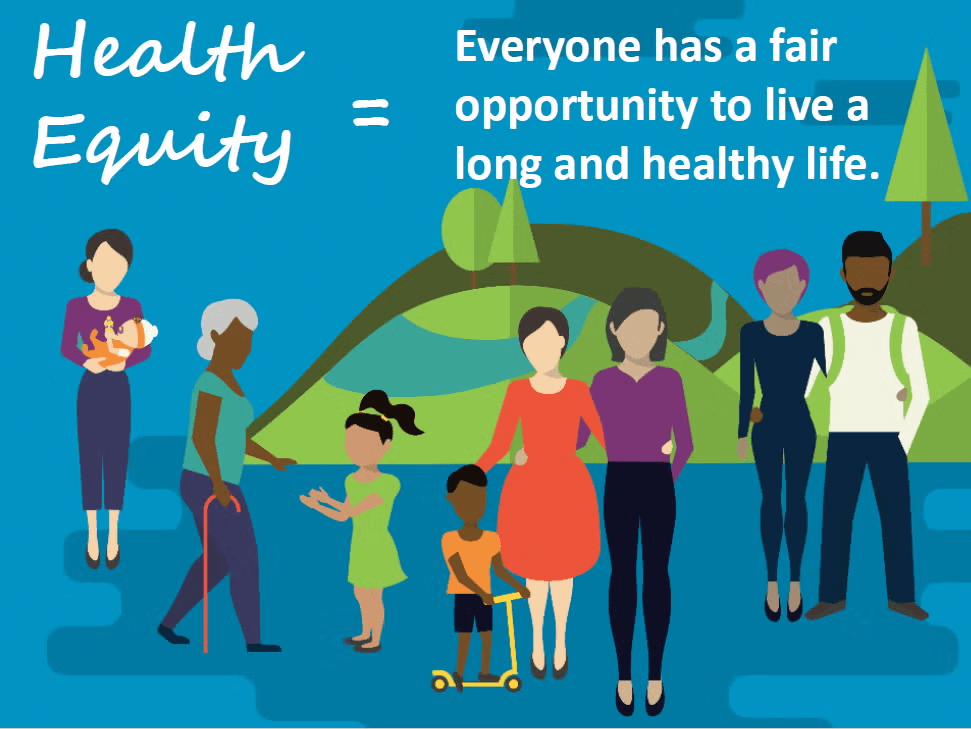
Understanding Health Equity: A Path Towards Universal Wellness
Health equity is a concept that resonates deeply in today’s society. It goes beyond the mere absence of disease and touches on the broader aspects of social justice, advocating for fair access to healthcare resources and services for all individuals, regardless of their socioeconomic status, race, ethnicity, or geographical location. This article explores the multifaceted dimensions of health equity, its importance, and the steps we can take to foster a more equitable health landscape.
What is Health Equity?
At its core, health equity refers to the idea that everyone should have the opportunity to attain their highest level of health. This involves not only providing equal access to healthcare but also understanding and addressing the underlying social determinants that affect health outcomes. These determinants include factors such as income, education, employment, social support, and community safety. Health equity means ensuring that systemic inequalities are identified and rectified, creating a healthcare system that benefits every individual.
The disparity in health outcomes is stark. Research shows that marginalized communities often face greater barriers to accessing quality healthcare. For instance, low-income families may lack transportation to medical facilities or be unable to afford necessary treatments. Similarly, minority populations frequently encounter biases within the healthcare system, leading to misdiagnosis or inadequate care. By focusing on health equity, we can work towards dismantling these barriers and ensuring that healthcare becomes a right rather than a privilege.
The Importance of Health Equity in Society
Achieving health equity is not just a moral imperative; it’s essential for the overall well-being of society. When all individuals have the opportunity to lead healthy lives, entire communities benefit. Higher levels of health equity correlate with improved productivity, reduced healthcare costs, and enhanced quality of life. Furthermore, equitable health systems are more resilient and capable of handling public health crises, as seen during the COVID-19 pandemic.
Investing in health equity creates a ripple effect throughout various sectors. For instance, healthier populations contribute to economic stability, reduced crime rates, and improved educational outcomes. When individuals can access the care they need, families thrive, workplaces flourish, and communities become stronger. Therefore, prioritizing health equity is fundamental to fostering a sustainable and prosperous future for everyone.
Challenges to Achieving Health Equity
While the goal of health equity is noble, numerous challenges hinder progress. One significant barrier is the entrenched nature of social determinants of health. Factors such as poverty, inadequate education, and discrimination don’t change overnight. Moreover, there are systemic issues within healthcare systems themselves, including limited resources in underserved areas and the lack of culturally competent care.
Another challenge lies in data collection and interpretation. To address health inequities effectively, stakeholders must understand where disparities exist. However, racial and ethnic minorities often remain underrepresented in health research, leading to a lack of tailored interventions. Furthermore, various political and social dynamics can stall initiatives aimed at reform.
To overcome these obstacles, a collaborative approach involving government action, community engagement, and private sector participation is vital. Policymakers must prioritize health equity in public health agendas, while healthcare providers and organizations need to establish practices that promote inclusivity. Community-driven efforts to empower individuals and raise awareness about health equity can further help dismantle existing barriers.
Strategies for Promoting Health Equity
Fostering health equity requires strategic approaches tailored to meet the needs of diverse populations. Here are several effective strategies:
- Community Engagement: Engaging local communities in health initiatives ensures that programs are relevant and culturally appropriate. Involving community leaders can also help mobilize resources and enhance trust between healthcare providers and patients.
- Policy Advocacy: Advocating for policies that aim to eliminate health disparities is crucial. This includes campaign efforts for better funding for public health programs, affordable healthcare, and improved access to preventive services.
- Culturally Competent Care: Healthcare providers should receive training to deliver culturally competent services. Understanding patients’ cultural backgrounds and values can improve communication and ensure that individuals receive respectful and personalized care.
- Data Transparency: Collecting and analyzing health data with a focus on demographics can illuminate where disparities exist. This allows for targeted interventions that address specific community needs, ultimately leading to more effective health outcomes.
- Education and Awareness: Increasing awareness about health equity among healthcare professionals and the general public is vital. Educational campaigns can shed light on the importance of addressing social determinants of health and promote inclusive practices.
- Intersectoral Collaboration: Building partnerships between various sectors – from healthcare to education, housing, and employment – can create comprehensive strategies to tackle health disparities. Collaborative action can lead to innovative solutions and shared resources.
Conclusion: The Road Ahead for Health Equity
Health equity is an achievable goal that demands commitment and action from all sectors of society. As we strive to ensure that everyone has the opportunity to achieve their best health, we must confront the challenges head-on and work together towards innovative solutions. By prioritizing community engagement, advocating for equitable policies, and fostering culturally competent care, we can build a health system that truly serves everyone.
Realizing health equity is not merely about addressing disparities; it’s about embracing a vision of a healthier, more just world. As we move forward, let us remember that the journey towards health equity is a shared responsibility—one that calls for empathy, understanding, and unwavering determination to create a brighter, healthier future for all.















